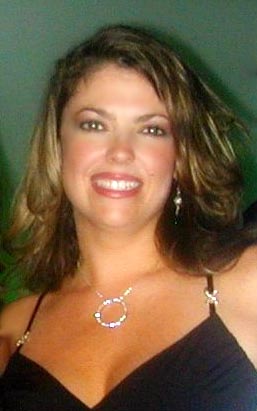Poverty in AmericaWhen I was six, my parents became Christians which changed everything in our home. They had been on the brink of divorce, but now, on fire for Jesus, my dad quit his welding job to go into full time ministry. Financially, our income dropped from middle class to borderline poverty, but I didn’t really notice it until I was older. We had food on the table, some of it government aid (I remember those blocks of cheese and giant bags of white rice well!), a huge garden in the summer that my mother froze and canned from and a roof over our heads. But I’m imprinted with a few memories that now, looking back, gives me a picture of how things were. Like the time two sacks of groceries mysteriously showed up at our door when there wasn’t any food left to put on the table for four hungry children. The times I waited for hours for my mother to pick me up from school when I was sick because we didn’t have a running car or gas, and she had to call people in the church to borrow a car. The bags of clothing that we were given and the way I dressed more like a forty-year-old woman than a teenager because that’s all I had. The way I learned to hide from friendships, hide behind the covers a safe book instead, because of the shabby furniture that made me ashamed to invite friends over or the pretending I learned to do. “I don’t like to ski,” I once told a girl who was trying to befriend me and invite me on a ski trip to Paoli, IN. Canoeing? King’s Island? “I can’t.” After awhile she stopped asking.
Or the time a group of teachers expressed that I should enter the local community college beauty pageant. “I don’t have a talent,” I told them, knowing I couldn’t scrounge up a decent dress. I’d tried a teen pageant once, but finding the “sponsors” had been a challenge. I remember walking into businesses, dressed in a suit, asking for . . . basically money, seeing those men look me up and down, judging whether or not I was worth a few dollars. I didn’t ever want to do that again for the sake of a gown.
Poverty makes for small living.
But most of all I remember how hard my mother worked to keep the body and soul of the family together. She truly gave her life, day after day, so that dad could be a preacher man. Hardship does build character, but more, it imprints itself onto a soul, coloring thoughts and actions for the rest of our lives. Children of poverty become something different, sometimes better, sometimes not, than they would have growing up without that lack. Lack opens a hole that later, I have found, must be filled with something.
As poor as we were, there were wonderful times too. As the church grew, my dad would take me with him on road trips. We would go, two, two and a half hours away to some little town in Indiana where he would preach at a home Bible study. There might only be ten or twenty people there, but he never cared, never complained about numbers. We would pull into the driveway in our small, light-blue Dotson that got so hot on the floor I had to hold my feet up, curled under me on the seat, so I couldn’t feel hot floor board beneath my tennis shoes. We would arrive at a house and dad would start the meeting. I don’t remember much aside from some praise songs, a message, and then falling asleep on a stranger’s couch as the night of preaching and ministry afterward stretched past midnight. But when we left, that was the best part, the part I remember in full-color, slow-motion detail. We would drive and talk of things beyond earth’s bounds: creation and the fall, God and Jesus and the rapture, the earthly walk compared to the spiritual walk and how we’re all born for more than what we can see or hear or feel. The meaning of life. The highlight was stopping at a truck stop along the way. Dad would spend a few precious dollars from the offering basket on two slices of pie and a couple of Cokes. Nothing ever felt so special as a middle of the night slice of pie with my dad. He would narrow his eyes, leaning across the table toward me and tell me in his deep, sure voice the mysteries of the universe and I believed him like he was a demigod dropped down to earth to take a turn as my father. Could anyone be as lucky as I was? And then we’d get back into the car that I didn’t realize was cheap and small that I thought was cozy and wonderful. Those moments were rich and have also formed the woman I’ve become.
Now, I see in myself some scars from being poor. I still buy my children too much. I still crave the latest styles to wear, dressing like a teenager sometimes, making up for when I couldn’t. I resent the kitchen. We eat out a lot. I now drive a nice car. I can see in my actions that the hole hasn’t gone away. But I wouldn’t change it. Holes are fillable and fixable with God’s grace. What I gained was far richer. My parents took a “leap of faith” when they chose to serve God with their lives, and God doesn’t promise that in this life we’ll get rich doing that. Paul ended up in prison at times. Jesus found his last breaths on a cross. But God does promise rewards in heaven, and . . . I can hardly imagine what those might be. Better than anything I had to give up! Unlike the earthly glories that moth and rust destroy, these rewards will last forever.
Bigger than my hole is my faith. Poverty is not fun. I don’t wish for it again, I don’t hope for it on anyone, but I know, that in God’s hands, it can be used for a good purpose. Now . . . I think I’ll go and clean out my closet, take some clothes to Goodwill or something. And maybe, tonight, I’ll cook my family a meal.

.jpg)






